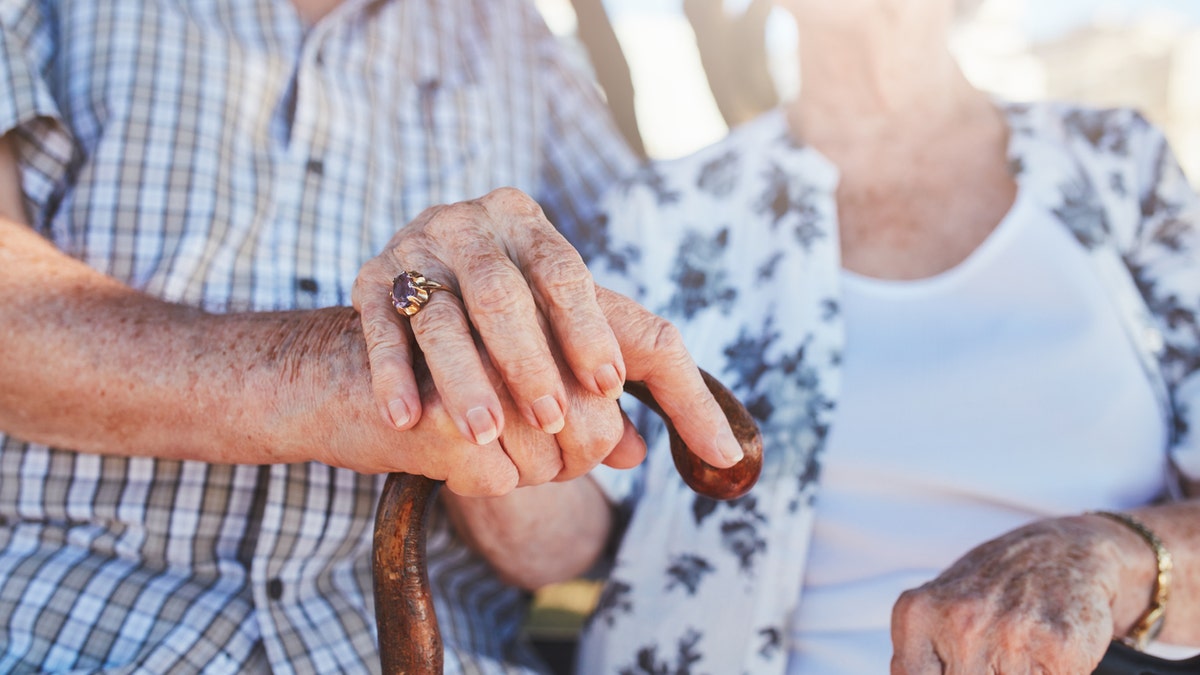
Cropped shot of senior couple holding hands while sitting together. Focus on hands on walking stick. (iStock)
For more than 75 years, Harvard’s Grant and Glueck study has tracked the emotional well-being of more than 700 men who either grew up poor in Boston, from 1939-2104, or graduated Harvard University, from 1939-1944. The men were interviewed again and again, their blood was analyzed and their brains were repeatedly scanned (once the technology existed). They also filled out many surveys about their levels of contentment and achievement, their physical symptoms and their psychiatric symptoms. What do the results show? They show that feeling and expressing love is the single most important variable in remaining emotionally and physically healthy and living longer.
That’s right: Truly loving relationships make us live longer.
Think about that, for a few moments. Decades of Harvard research have revealed that love between humans—whether deep and abiding friendship or truly heartfelt romance—insulate the cells in our bodies from damage and destruction. Nourishing our souls at a profound level of human connectedness makes our bodies able to withstand oxidation. Literally.
Do you believe that science will ever reveal why that is? I don’t. I think it is mystical and immeasurable and—precisely because it is not subject to rational, analytic inquiry—another very compelling argument for that supreme force of creation called God.
Specifically, the Harvard study found that feeling lonely was linked with more physical illness and earlier death. And, conversely, having someone to rely on was clearly associated with reduced emotional and physical symptoms, preserved brain function, and less physical pain—for decades.
What’s more, according to the data, marriage itself isn’t protective (unless it is a really good marriage), nor is having children (unless one’s relationship with them is truly deep), nor is being vastly wealthy, nor is having the best doctors, nor is having relatives who lived to 100.
According to the study, it is the quality of relationships—not the quantity of them—that matters. Having hundreds of acquaintances, dozens of admirers or thousands of Facebook friends won’t turn the key.
Deep levels of connection and trust are what enhance and preserve lives—not throwing lots of parties or being the life of the party.
We are less vulnerable to decay, if we are less alone. Period.
We don’t need Snap Chat. We need to snap out of it and find one another, for real.
